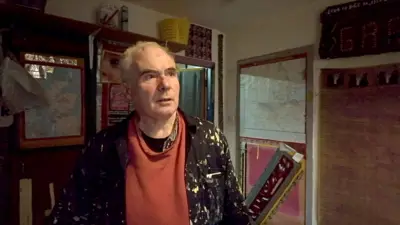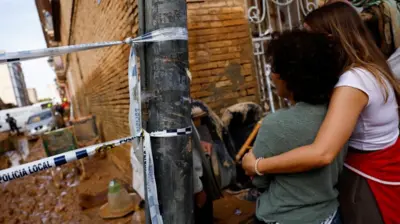We've updated our Privacy and Cookies Policy
We've made some important changes to our Privacy and Cookies Policy and we want you to know what this means for you and your data.
Venice court fines top architect Calatrava in bridge dispute
Image source, AFP
A Venice court has fined world-famous Spanish architect Santiago Calatrava ÔéČ78,000 (┬ú72,000) for alleged errors that made his Constitution Bridge on the Grand Canal more expensive.
The controversial bridge was beset with problems after its opening in 2008.
The Audit Court held Mr Calatrava responsible for going over-budget: the bridge cost ÔéČ11.6m instead of ÔéČ7m.
The court found that tubes were the wrong size, steps wore out too quickly and fixes were needed for wheelchairs.
The problems led to the court accusing Mr Calatrava, 68, of gross negligence.
At the time of the bridge's inauguration Mr Calatrava defended himself against his critics, saying the design was technically sound.
Image source, Getty Images
. Among his projects were the Turning Torso tower in Malmo, Sweden, and the World Trade Center Transportation Hub in New York.
It is the first bridge to be built in central Venice for 125 years, and links Santa Lucia train station with Piazzale Roma.
The glass-and-steel bridge is 94m (308ft) long and its width varies, from 5.58m to 9.38m.
A Venice engineer responsible for the bridge, Salvatore Vento, was also fined ÔéČ11,000.
The court took the view that the bridge mistakes were "all the more serious" because the project had been assigned to "a respected, world-famous professional, with a very high level of competence, with wide and proven experience in bridge construction".
The 6 August decision overturned a 2015 ruling by the court, which had absolved Mr Calatrava over the extra costs.
when challenged about the extra costs and alleged errors.
He said his studio had "nothing to do" with the construction of a platform for wheelchair users, undertaken by the Venice municipality.
Image source, AFP
Mr Calatrava denied any material weaknesses, saying "the bridge was checked with sophisticated methods, which determined that it has a solid structure which is behaving better than expected".
He also said the extra costs were linked to improvements to the canal-side areas next to the bridge.
Top Stories
More to explore
Most read
Content is not available








